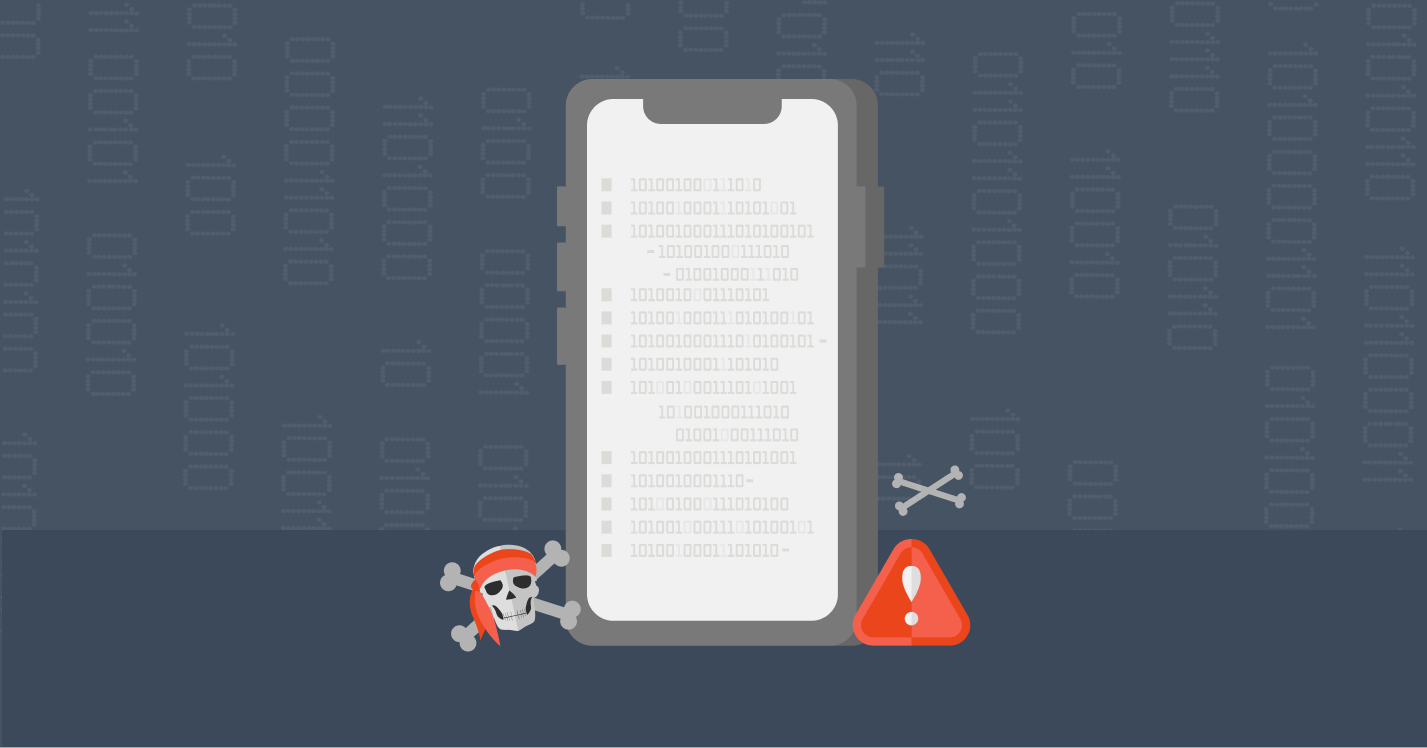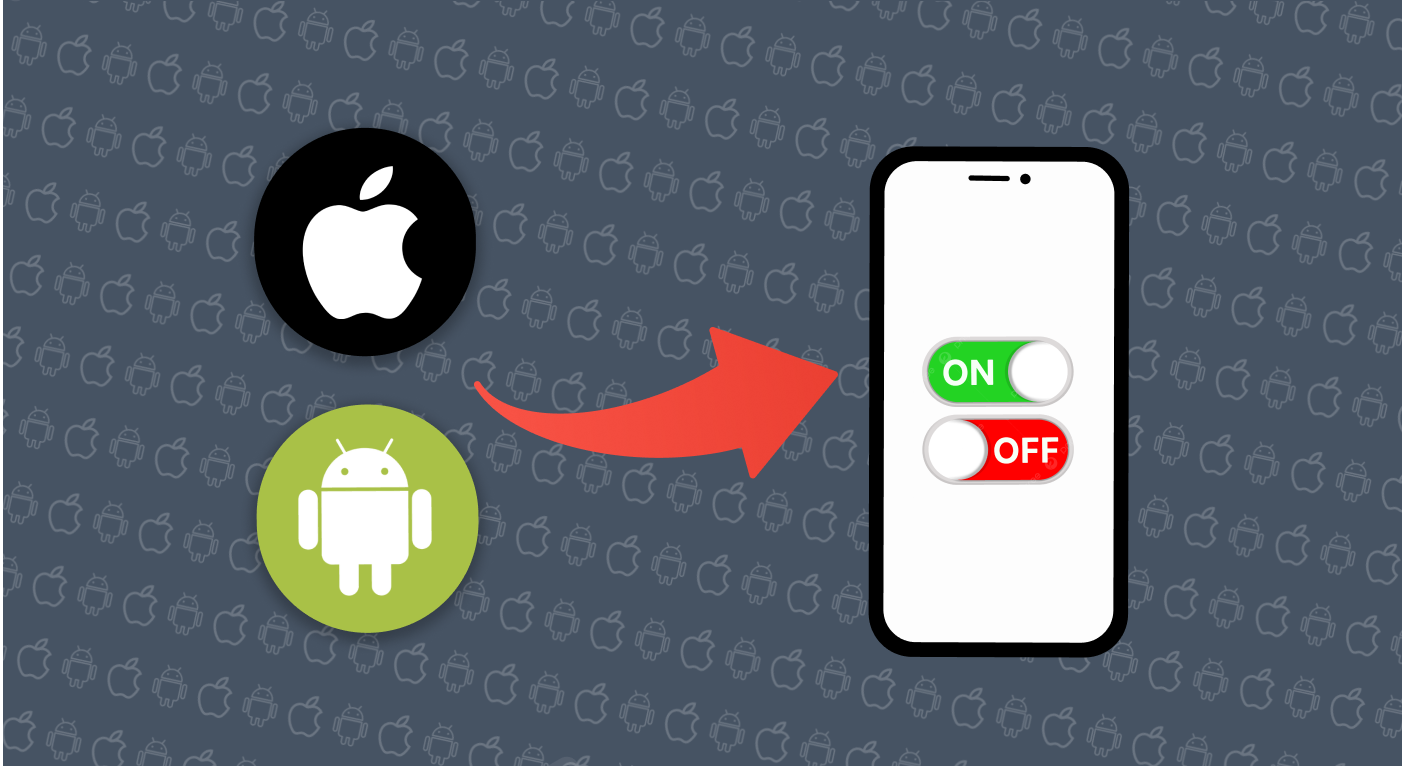PayPal is one of the world’s most popular platforms. It is widely used for national and international online payments and purchases. However, many people are unsure about its online security, even though the platform offers payment protection, encryption, and other security features.

Are PayPal’s features sufficient to keep your private data safe? If not, how can you protect yourself from scams? Don’t worry. We are about to discuss everything regarding PayPal’s security and how to enhance your online security using precautionary steps and a high-end VPN like ExtremeVPN.
How Safe is PayPal to Use?
Generally, PayPal is considered safe to use. It offers security for both buyers and sellers and keeps the transactions encrypted between these parties. But your transaction and other information remain safe until you do it on the actual website of PayPal.
Paypal’s Security Features
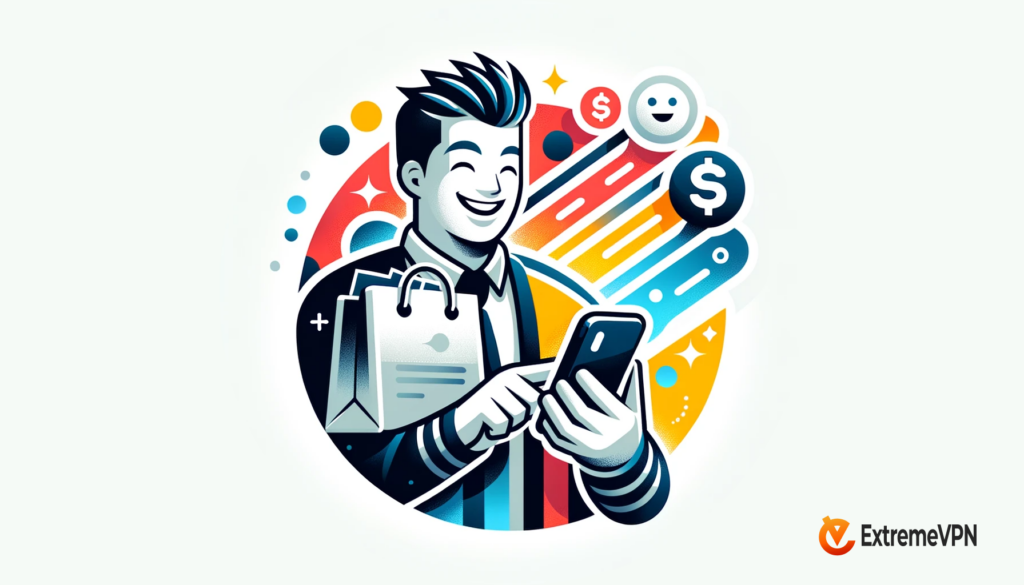
People prefer PayPal over other online payment platforms because of its robust encryption and security features. Below are the vital security features of PayPal:
- Data encryption: The platform offers SSL and 128-bit encryption to guard users’ data and payments.
- Browser integrity checks: It cross-checks your browser’s security standards before giving you access to your account.
- Security key: For extra protection, it offers a two-factor authorization feature in which the platform sends you a verification code to your smartphone every time you log in.
- Fraud monitoring: PayPal alerts you automatically when someone uses your account for fraud-related activities or transactions.
- Dispute resolution: It offers a dispute resolution option where PayPal helps clients and service providers resolve payment-related issues.
- Purchase protection: The online payment platform provides purchase protection, which ensures qualified purchases. It ensures delivery and non-delivery costs and deals with cases of damaged items.
- Seller protection: Unlike its rivals, PayPal offers excellent protection for sellers. It guards them against chargebacks and false claims by customers. But it decides according to the evidence.
Note: Using your PayPal account on a public WiFi network can be harmful because the service provider can easily monitor your online activity. Therefore, we recommend using a high-end VPN like ExtremeVPN before using PayPal. It gives an additional layer of security and encrypts your data so nobody can watch what you are doing.
For Sellers
If you are a seller or a business owner who uses PayPal to do online transactions, you must know what form of protection you will get from the platform. Below are the privacy protection features that PayPal provides to sellers:
- The service offers an excellent seller protection program that prevents merchants and business owners from losing money in scams, fake claims, and chargebacks.
- PayPal keeps a 24/7 check-and-balance and saves sellers from fraudulent transactions by sending alert messages regarding strange activity.
- You only need a username and password to make a transaction. There’s no need for card numbers and bank accounts.
- Merchants can contact PayPal at any time in case of fraud detection.
- If a buyer makes a fake claim, sellers can open a dispute, and PayPal will hold the amount until the problem gets resolved.
For Buyers
PayPal not only provides security features for sellers. It also provides similar and a few additional protection measures for buyers. As the transaction is done between sellers and buyers, PayPal provides end-to-end encryption to keep the transaction information safe on both sides. But make sure you have a secure internet connection and are making online payments via the actual PayPal website.
Buyers get security measures similar to sellers, including dispute resolution, 24/7 fraud monitoring, and fraud prevention.
Moreover, it offers buyers a Purchase Protection option, helping them prevent online scams. The Purchase Protection is so strong that if you get an order damaged or changed from the description, you will get a complete refund from PayPal in 180 days. All you have to do is to open a dispute on the platform.
Kinds of Online Transactions on PayPal
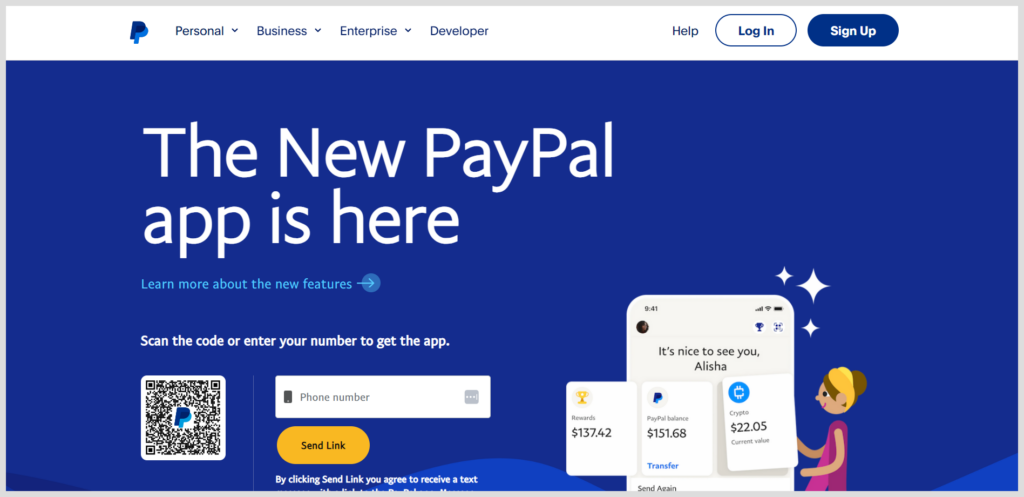
People mostly use PayPal for two types of transactions: friends & family and goods & services.
Friends and Family Transactions
Friend and Family payments via PayPal include transactions between someone close to you or someone you know. People use this method while making payments for dinners, paying back to friends the money they borrowed, sending money abroad to family members or relatives, and more.
When you use friends & family to make a transaction, PayPal will not charge any fee if you make it from your linked bank account, PayPal Cash Plus balance, or PayPal Cash. However, you must pay a small amount (2.9% + fixed fee) as a transaction fee for debit, credit, and other types of Friends and family payments.
Goods and Services Transactions
This transaction method is used while purchasing a good or paying for a service from a seller. PayPal provides a benefit to the buyer in this method. It doesn’t charge any transaction fee from the buyer. The seller pays it every time.
As PayPal charges the transaction fee from the seller, the sellers might ask you to use the transaction method as “Friends & Family” because no fee will be charged. But keep in mind that PayPal won’t provide purchase protection on this method. In addition, it is a perfect technique for getting scammed, so be aware.
Significant Risks of Using PayPal
People mostly use PayPal for online transactions because of its safety measures. Its payment and data protection policies make it one of the most widely used online transaction platforms, having confidential information of over 320 million users. However, the company had its cybersecurity failures. PayPal was fined $2M by New York’s Department of Financial Services for exposing users’ Social Security numbers in 2022.
This enormous financial information also makes it an excellent prey for scammers. Scammers scam PayPal users by sending fake emails and identity theft, and phishing fraud. According to a report, about 83% of Americans got scammed on apps like PayPal, Zelle, and Venmo in 2024. The most common method used in those frauds was PayPal email scams.
These emails contain fraudulent PayPal sites that ask you to provide your PayPal details to access. Scammers curate emails in such a way that convince users to click on the link. Once they click on the link, they will ask you to send money or share your personal information, like your PayPal account details.
PayPal Email Scams
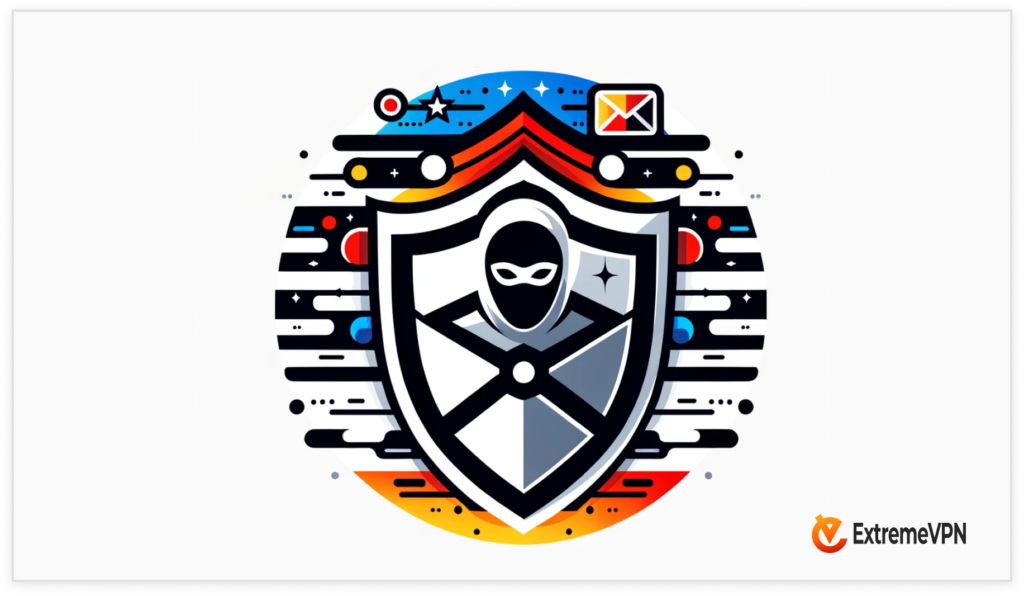
Scammers use psychological techniques and write emails that require urgent action and ask you to click on a fake PayPal website link. Below are the most popular PayPal email scams:
- “Your account is about to be suspended.” Fraudsters claim themselves as PayPal support representatives and tell you there is something wrong with your account and you should look at it by using this link. Once you open the link, they will ask for your PayPal account password. Now, your PayPal account is in the hands of scammers. The platform doesn’t need passwords on other web pages except its official PayPal page.
- “You have received a payment.” You will get an email from scammers that they have paid you for the item you are about to ship. But in reality, they want your item for free. PayPal doesn’t send tracking numbers via email. So, before shipping the product, open your PayPal account to ensure you have received the payment.
- “You have been paid too much.” Fraudsters often send emails claiming they have paid you more than the price. For example, they purchase a smartphone from you and pay $1000 instead of $700. They will tell you to ship the remaining amount with the smartphone. However, in actuality, they want both things without spending a penny.
Below are some common types of PayPal scams:
- Fake transaction confirmations: Fraudsters send fake emails claiming that it is from PayPal and confirming a transaction you didn’t make. After reading this email, you will panic and click the phishing link to cancel the payment.
- Charity scams: Scammers send emails, claiming to be from a welfare organization and collecting donations via PayPal. You will donate money, and they will take advantage of your empathy.
- Shipping frauds: These people will act like buyers and purchase something from you. After purchasing, they will ask you to ship the product to a different location. Because they want to scam you without paying anything for the product by telling PayPal you didn’t send the product to the correct address.
- Advance-payment scams: Here, you’ll receive an email that you’ve earned a large sum of money, such as a lottery win. However, to get this, you need to deposit a small fee through PayPal.
- Fake refund emails: You will get an email from a fake PayPal account telling you a refund is pending. Enter your account details using the link below to make the payment.
- Fake invoices: Fraudsters often email inauthentic emails containing invoices for the service or product you didn’t order.
- Canceled invoices: Scammer sends emails claiming that the transaction you did has been canceled. There will be a support link and a phone number, but both are fake.
How Can You Recognize a PayPal Scam

As phishing attacks have been increasing globally for a long time, you must understand how to recognize them and save yourself from losing money. Although PayPal offers robust security measures, scammers can still scam you.
Below are some vital tips to help you identify PayPal scams:
- General greetings: PayPal always greets its users with their names, not with standard greetings sent by scammers, like “Dear User.”
- Grammatical mistakes: Most of the emails sent by scammers contain grammatical mistakes. While emails from PayPal contain zero grammatical mistakes.
- Sense of Urgency: Scammers send emails containing information that makes you panic and force you to act urgently.
- Purpose of Email: PayPal only sends emails for promotions, receipts, and payment notifications. For all matters, the company notifies you on the official website.
- Email address: The online payment platform uses official emails, including [email protected], for notifications and statements. For receipts, it uses [email protected].
- Domain name: If you mistakenly clicked on the phishing website link, check the domain name before entering any information. PayPal has two different domains, including PayPal.com and PayPal.me.
- Unknown attachments: Be careful while opening emails from unauthorized sources. These kinds of emails often contain phishing sites.
Is it Possible to Report a PayPal Scam?
Yes, you can. Instead of ignoring scams, PayPal users must report them after detecting suspicious activity on their accounts. Here’s how you can report a PayPal scam:
- Check your PayPal account: After getting a scam email, ensure you haven’t clicked on any link mentioned in that mail. Open your PayPal account and check if there’s anything wrong with your account. If there is, you can confirm it from the Message Center.
- Report a problem: PayPal allows its customers to report scams to the PayPal Resolution Center. In addition, if you don’t know how to report it to the Resolution Center, you can simply forward the suspicious email to [email protected] and [email protected].
- Change your password: If you realize that scammers have won the game, don’t panic. Stay calm and open your PayPal account on the official website to change your password. Create a strong password yourself, or use ExtremeVPN’s Free Password Generator.
Can I Get My Money Back from PayPal If I Get Scammed
The online payment platform only refunds money when the product you purchased isn’t the same or has damage. You can report this issue to PayPal, and it will tell you if a refund is eligible.
However, sellers use many techniques to refund your money. For example, they will send you a low-quality product that matches the description or ask you to ship it to an address with a high shipping fee. If you get trapped in the seller’s tricks, there are meager chances that PayPal will get you a refund.
Moreover, PayPal will not refund the money or provide any purchase protection if you used Friends and Family as a transaction method (as we warned above).
Is PayPal Safe to Link a Bank Account or a Credit Card?
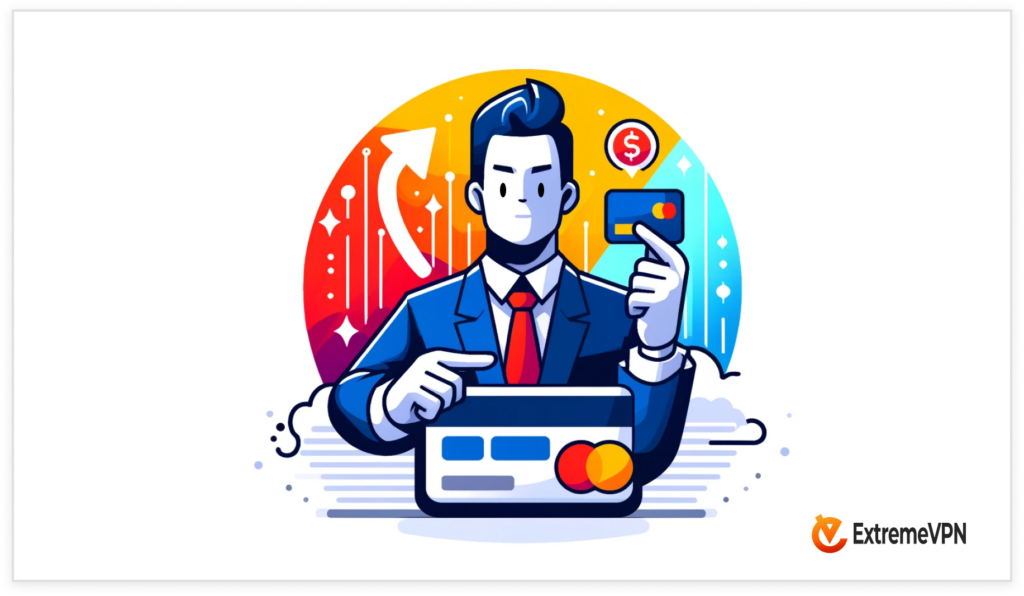
Many people link their bank accounts and debit cards with PayPal, but linking your bank account or debit card with PayPal isn’t a smart choice, because if, in any case, your bank account gets hacked, you can lose all of your money. For this reason, we recommend using credit cards with PayPal to make online purchases, even if they get hacked, it’s just credit.
Plus, the dispute resolution is slower for banks than for credit cards. For instance, your bank account is connected with PayPal, and you find suspicious transactions. Now, you can only contact PayPal within 180 days, and they will refund the eligible transactions after getting evidence.
On the other hand, credit cards provide additional security that guards from unauthorized transactions. Using credit with PayPal to make purchases will get you an additional layer of protection.
Moreover, if your credit card includes zero liability protection (the cardholder won’t be held accountable for any unauthorized charges), then under US federal law, you will only pay $50 if your card gets stolen, misplaced, or someone does unauthorized transactions.
The benefit of using PayPal for online payments or purchasing goods is that your most important information remains in safe hands in a single place. For example, if your card gets misplaced or you need to change your bank account number, you don’t need to change it from everywhere you pay or shop. You can update this information just on PayPal, and you are good to go.
How to Stay Protected on PayPal
Follow these tips to stay safe on PayPal:
- Use a VPN: You can encrypt your online activity using a top-notch VPN like ExtremeVPN and use PayPal without fear of cyberattackers. ExtremeVPN provides military-grade data encryption, which keeps your data and privacy safe.
- Use Antivirus: Using Antivirus software, you can save your device and other personal information, including PayPal, from getting compromised.
- Account check: Check your PayPal account regularly and cross-check the payments you have made.
- Strong passwords: Create robust passwords containing at least eight digits, a capital letter alphabet, a small letter alphabet, digits, and a unique symbol, like (@, !, <, >, etc.). Don’t use easy-to-guess passwords like country name, date of birth, current year, etc.
- Use credit cards: Using credit cards, you will get an additional layer of protection. In addition, credit card companies will provide you with a refund if you don’t get it from PayPal in case of unauthorized transactions.
- Two-factor authorization: 2FA increases the time you log into your PayPal account but enhances your account’s privacy. Using this technique, you will get a one-time password every time you log into your account after entering the password.
- Email check: Avoid opening emails regarding your PayPal account from addresses other than [email protected] and [email protected].
- Update software: Regularly check for updates because new updates always come up with more advanced security features.
- Avoid public WiFi: Public networks are unsafe for websites like PayPal because the Internet Service Provider can monitor your online activity and access your PayPal account. If you must, use a VPN when accessing them.
How Can You Delete Your PayPal Account?
Follow the steps below to delete your PayPal account; however, remember that it can’t be recovered once deleted. Although you can make various PayPal accounts using different emails.
Things to Do Before Deleting a PayPal Account
- Withdraw your funds: If you have cash in your account, you must transfer it to another PayPal account or bank account.
- Halt recurring payments: If your PayPal is connected to recurring subscriptions or payments, remove it and attach your other account.
- Clear balances: If you have any pending payments or issues, clear them before removing your account.
- Save transaction history: Copy and save your transaction history on another device because you can no longer access it after deleting your PayPal account.
Delete PayPal Account on Desktop
Follow these short steps to remove your PayPal account on desktop:
- Visit the official website and enter your PayPal login credentials.
- Go to settings.
- Select the “Account options” and choose “Close your Account.”
- Enter the required information.
- Select “Close Account.”
- Your PayPal account is no longer available.
Delete PayPal Account on Mobile
Follow these short steps to remove your PayPal account on mobile:
- Click on the PayPal profile icon at the top left corner of the screen.
- Click on the “Close your account” option.
- Your PayPal account is no longer available.
Why You Should Use PayPal with ExtremeVPN
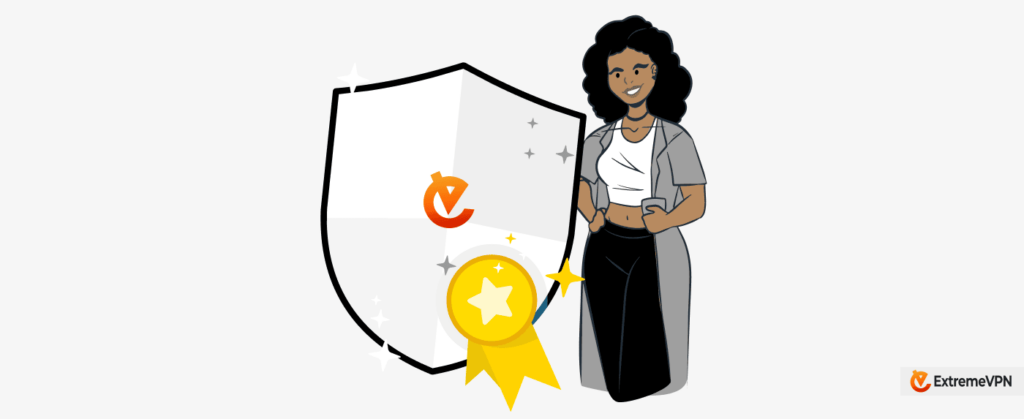
ExtremeVPN is a feature-rich VPN service that keeps your data secure from prying eyes. No matter where you are, your online activities remain completely private and shielded. Below are the vital features that show why you should use PayPal with ExtremeVPN:
- Data encryption: ExtremeVPN provides AES 256-bit military-grade data protection. It is the most advanced technique in the world to encrypt data and save it from prying eyes. Nobody can monitor your online activity through its encryption, even your ISP.
- Split tunneling: ExtremeVPN allows its users to shift the traffic selectively, allowing you to direct some data through an encrypted tunnel while using PayPal and other services with unrestricted access and security.
- Unblocking websites: You can use ExtremeVPN to access PayPal in geo-restricted countries like Pakistan and Indonesia.
- Kill switch: Another essential feature that ExtremeVPN provides is its kill switch button. A kill switch disconnects the internet traffic automatically whenever your VPN connection drops, saving you from being traced while doing online transactions on PayPal or other services.
Moreover, ExtremeVPN is compatible with multiple devices and operating systems. Therefore, you can use it with PayPal on any device you want and keep yourself safe from the reach of scammers and cyber attackers.
